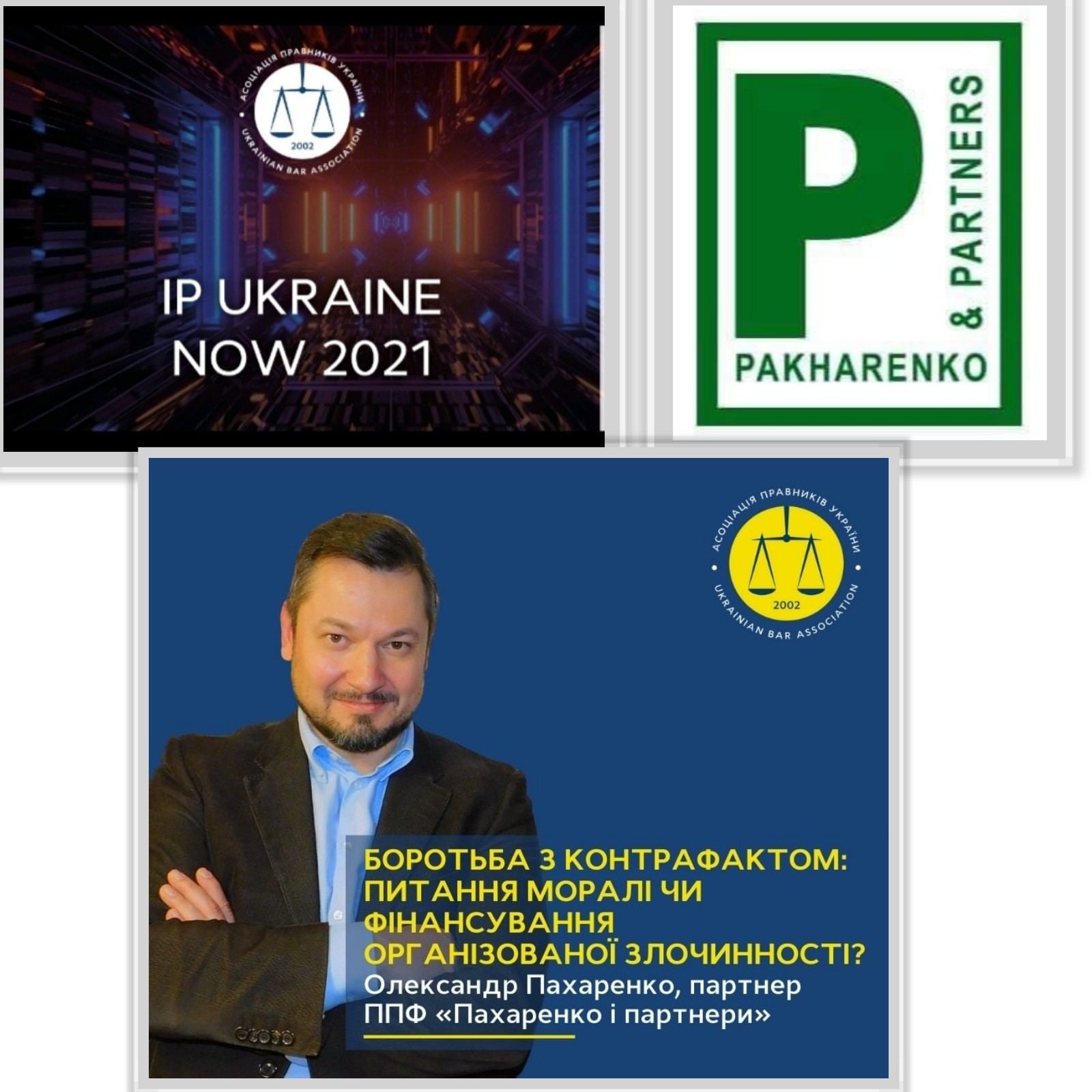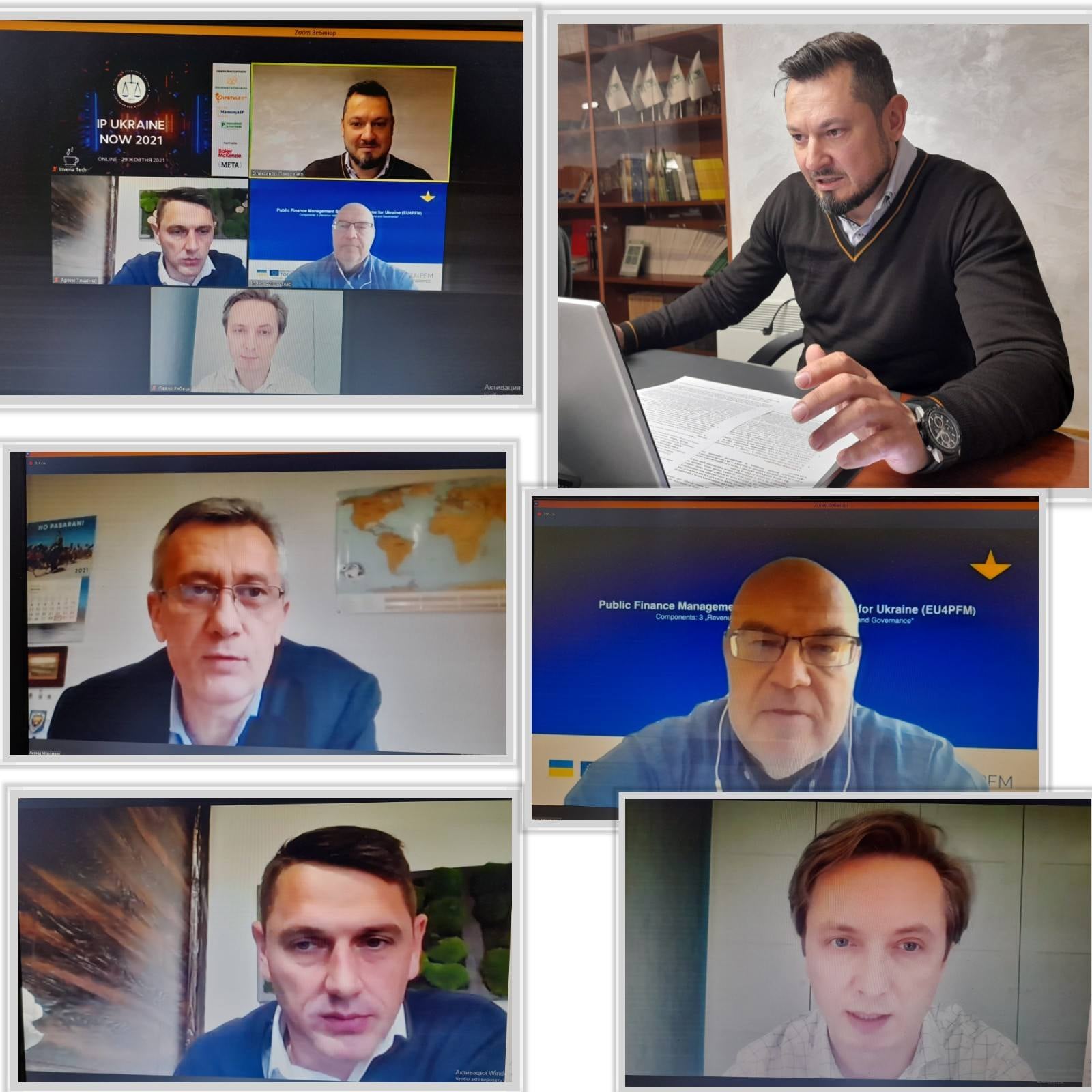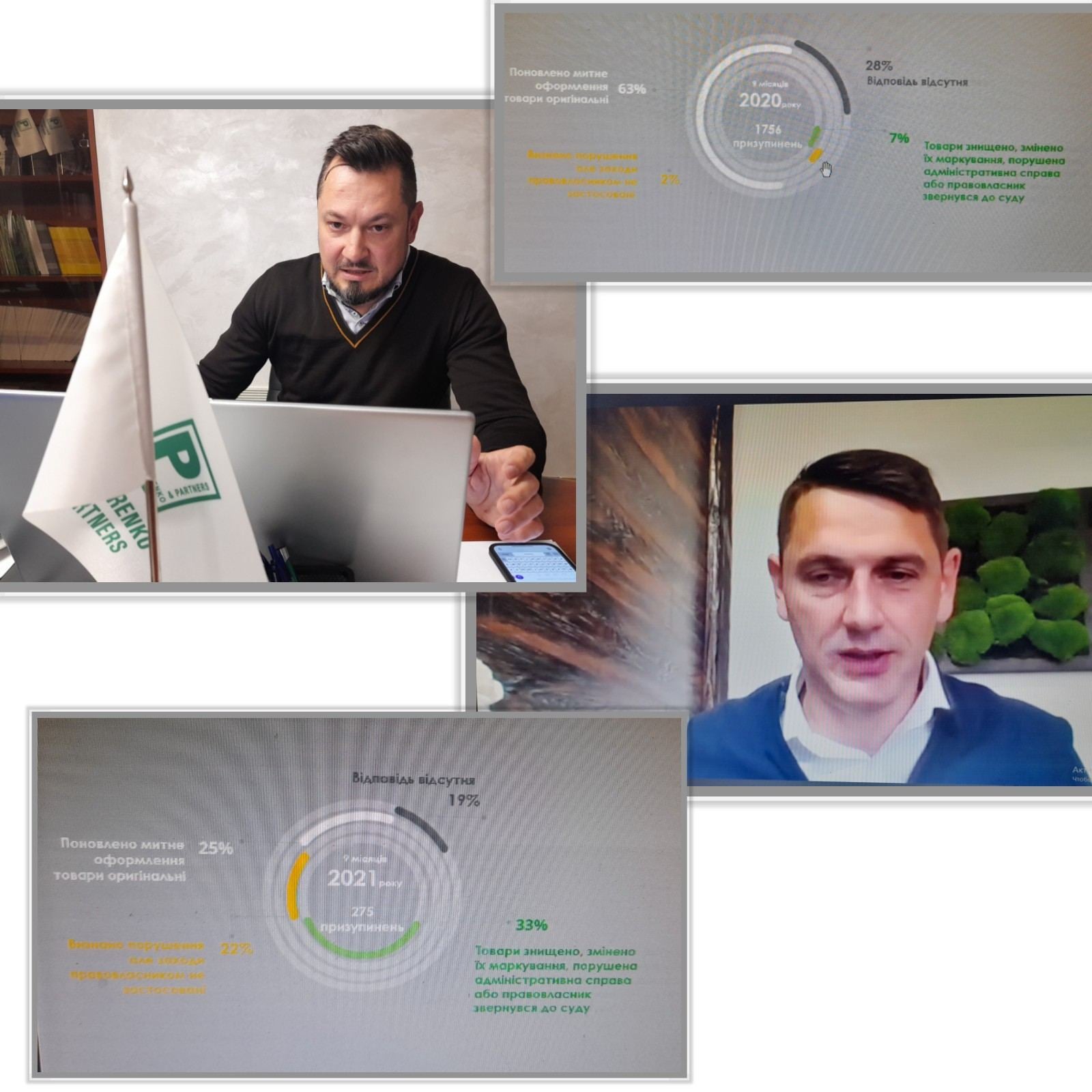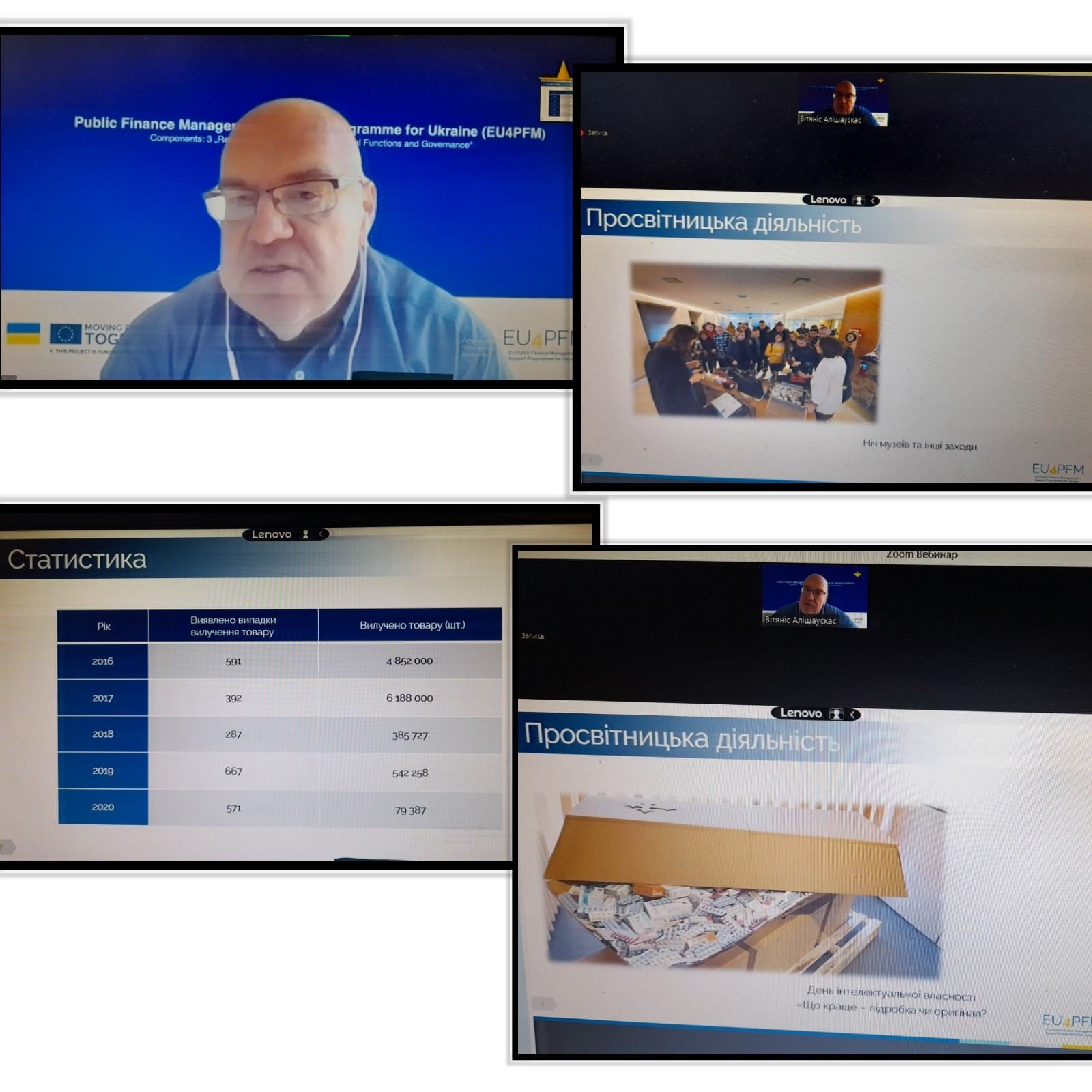Vytenis Ališauskas, EU4PFM International Key Expert on Customs, participates in Forum IP UKRAINE NOW 2021
During the 4th session “The protection system of intellectual property rights at the border: has the new customs register started working?” of the annual forum IP UKRAINE NOW 2021, which was attended by Vytenis Ališauskas, an International Key Expert on Customs of the EU Public Finance Management Support Program (EU4PFM), Leonid Muromtsev, Acting Head of the Non-Tariff Regulation Department of the State Customs Service, Artem Tyshchenko, Head of the Department for Promoting the Protection of Intellectual Property Rights of the Customs Control and Registration Division of the Odesa Customs of the State Customs Service and Pavlo Ryabets, USAID Expert on Intellectual Property Rights of the USAID Competitive Economy of Ukraine Program, these topics were discussed:

- focusing on counterfeiting, not on imitation of the original goods;
- conclusions on the signs of originality or counterfeiting of goods;
- placement and storage of suspended goods at the customs warehouse and accrual of storage amounts;
- work organization of enterprises that perform the destruction of counterfeit products;
- achieving a positive result of the application of border measures.
At the beginning of the session, a moderator, Olexandr Pakharenko, a partner at Pakharenko and partners and director of the Ukrainian Alliance against Counterfeiting and Piracy, stated that considering the recent experience of companies-rights holders, from July 1, 2021, the situation with the protection of intellectual property rights at Ukrainian Customs has begun to improve. The Customs Register of Intellectual Property Rights operates in a new format, the risk analysis system is activated, and the seized goods are disposed of or administrative protocols on violation of customs rules are drawn up.
Vytenis Ališauskas, an International Key Expert on Customs, answering questions about the scale of existing suspensions of counterfeit goods in the EU countries, focused on the experience of Lithuania.
“Customs detentions are usually calculated in sums of money – the amount of damage or the amount of the value of the goods. But when we talk about counterfeit products – we say that the price of such products is zero, and we do not keep statistics of counterfeit products,” – said V. Ališauskas.
According to the expert, Lithuania, together with other EU countries, organizes raids that are more targeted on specific goods (as an example – raids aimed at detecting counterfeit food and alcoholic beverages). The purpose of raids is not only to remove counterfeit but also to establish the entire chain – from the manufacturer to the distributor.
European customs officers and experts, noted Vytenis Ališauskas, constantly share experience and recommendations on combating counterfeiting with Ukrainian colleagues. A central place in this fight is occupied by the information systems – in the EU they do not stand still and now it is possible for a trademark owner to submit an online application into the system with a request to the customs to control the movement of the goods. The EU countries are constantly developing customs IT systems and Ukraine should also envisage renewal of such systems because today’s life requires the expansion of its functionality, the expert said.
The last word in determining whether a product is a counterfeit or not does belong to the customs laboratory, but to the trademark owner, who submits the application to the COPIS system. In case it is found out that the goods are counterfeit, they are destroyed but first transferred to the customs warehouse, which has a contract with a licensed company engaged in recycling, explained V. Ališauskas.
Both the owner of the goods and the owner of the trademark can take part in the destruction process. Though it is possible, they rarely follow this participation. As for the costs of destruction – they are borne by the trademark owner, said the expert.
“It is important to work with the public – we encourage people not to buy or use such goods, because they may be dangerous, especially food. We also emphasize that taxes are not paid on counterfeit goods, or paid much less, which means that the state budget suffers. We carry out this work together with trademark owners’ associations,” V. Ališauskas explained.
Summarizing the above, he stressed that to protect intellectual property rights at the customs border, the copyright holder must take three main steps.
The first is to apply for inclusion into the COPIS database (centralized intellectual property database), which provides for the protection of the trademark and the company’s consent to the detention and destruction of goods.
The second aspect is that only the right holder can confirm that goods are counterfeit, so he would have the final word on it.
The third step – in case of destruction of the goods, the right holder bears all financial expenses. The right holder, together with the customs, also participates in public awareness campaigns, summed up Vytenis Ališauskas, EU4PFM International Key Expert on Customs.
Let’s implement changes together!




